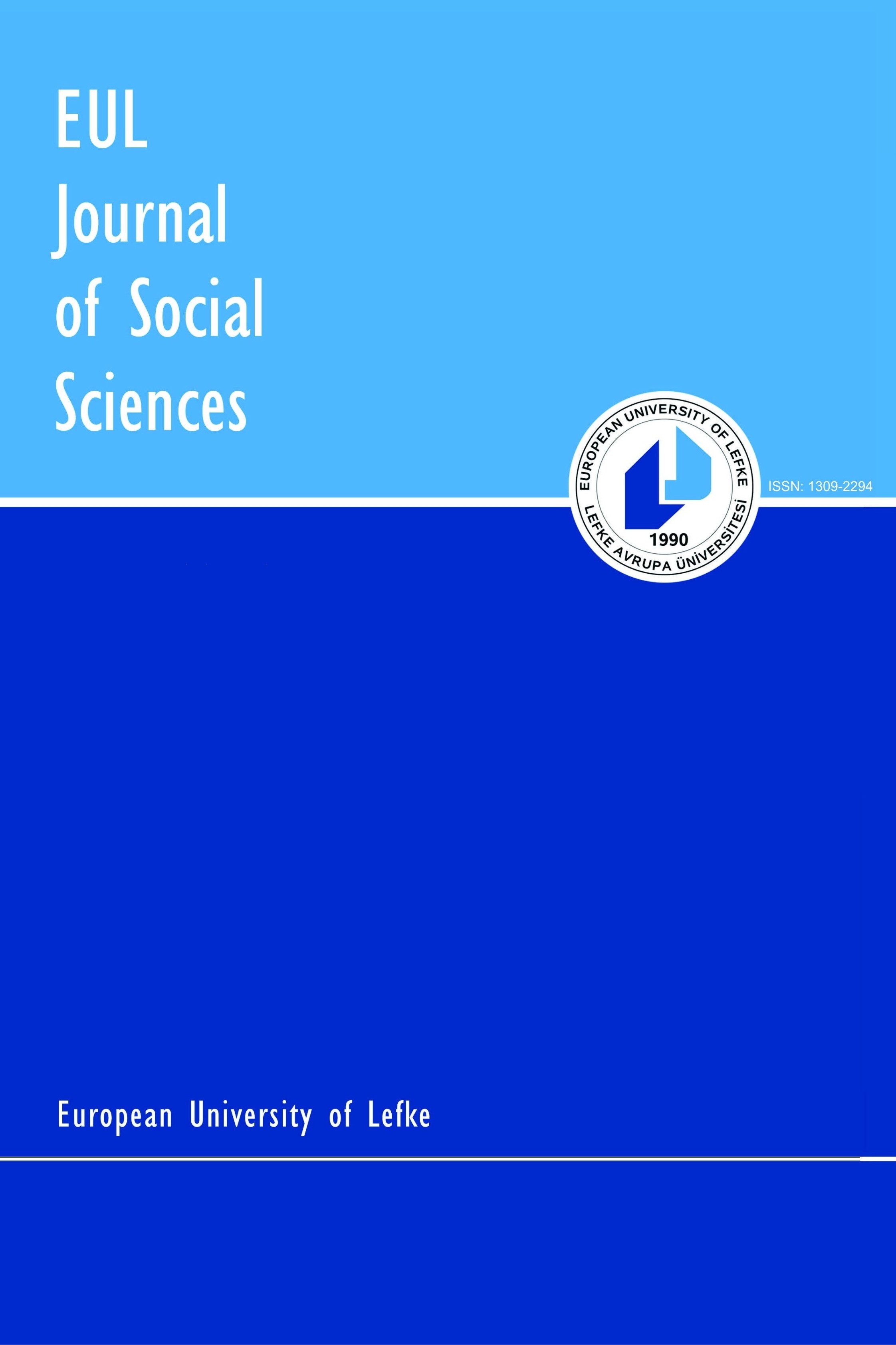THE ROLE OF THE UNITED NATIONS IN PEACE-BUILDING IN CYPRUS: LESSONS FROM UNDP AND UNFICYP
United Nations, Cyprus, peacebuilding, gender equality, sustainable development, UNFICYP, UNDP
THE ROLE OF THE UNITED NATIONS IN PEACE-BUILDING IN CYPRUS: LESSONS FROM UNDP AND UNFICYP
United Nations, Cyprus, peasebuilding, gender equality, sustainable development,
___
- Akçalı, E. and Antonsich, M (2009). “Nature Knows No Boundaries”: A Critical Reading of UNDP Environmental Peacemaking in Cyprus”, Annals of the American Association of Geographers 99(5): 940-947.
- Archer, C. (2002). International Organizations, London: Routledge.
- Baetens, F. (2014). “Is the UN Peacebuilding Commission Successfully Filling an Institutional Gap or Marking a Missed Opportunity?”, in J. S. Carsten Stahn, Jus Post Bellum Mapping the Normative Foundations. Published to Oxford Scholarship.
- Bölükbaşı, S. (2001). Kıbrıs’ta Barışçı Sözümsüzlük (Peaceful Non-Settlement [in Cyprus]), Ankara: İmge Yayınları.
- Brahimi Report (2000). Retrieved from https://peacekeeping.un.org/en/report-of-panel-united-nations-peace-operations-brahimi-report-a55305
- Cyprus Mail. (2021). Retrieved from Cyprus Mail website: https://cyprus-mail.com/2021/05/31/just-eight-female-mps-a-drop-of-three-per-cent/?fbclid=IwAR3Rh05CGl-xiZJx1qH, Accessed 1 August 2021.
- Demetriou, D. (2019). Gender in the Cyprus Negotiations. Oslo: Peace Research Institute Oslo (PRIO).
- Eralp, D. D. and Beriker, N. (2005). “Assessing the Conflict Resolution Potential of the EU: The Cyprus Conflict and Accession Negotiations”, Security Dialogue, 36(2): 175-192.
- Euronews (2021). “Can a new round of UN peace talks solve the decades-old Cyprus conflict?”, 28 April 2021. https://www.euronews.com/my-europe/2021/04/26/can-a-new-round-of-un-peace-talks-solve-the-decades-old-cyprus-conflict
- Flynn, M. K. (2016). “Peacebuilding, Civil Society and Aid Conditionality in Cyprus: Evaluating Success Without Sustainability and Impact”, Journal of Peacebuilding & Development 11(1): 81-87.
- Hadjipavlou, M. (2007, May). “The Cyprus Conflict: Root Causes and Implications for Peacebuilding “Journal of Peace Research, 44(3): 349-365. https://www.jstor.org/stable/27640515
- Kumar, K. (2001). Aftermath: Women and Women’s Organizations: The Role of International Assistance. U.S. Agency for International Development, 14-18.
- Lehrs, L. (2020). “Give Peace a Plan: Peace Plans as Diplomatic Tools and Textual Agents in Conflict Areas”, International Studies Quarterly, 65(1): 238-249.
- MFA (2021). Ministry of Foreign Affairs of Turkey. Retrieved from https://www.mfa.gov.tr/how-did-the-greek-cypriots-persecute-the-turks-of-cyprus-between-1963-1974_.en.mfa (Accessed 5 April 2022)
- ISSN: 1309-2294
- Yayın Aralığı: Yılda 2 Sayı
- Başlangıç: 2010
- Yayıncı: Lefke Avrupa Üniversitesi
MİLLİYETÇİLİK AKIMININ OSMANLI DEVLETİ’NE ETKİLERİ: KARADAĞ’IN BAĞIMSIZLIĞI
THE ROLE OF THE UNITED NATIONS IN PEACE-BUILDING IN CYPRUS: LESSONS FROM UNDP AND UNFICYP
Tutku DOĞAN, Sultan OKUMUŞOĞLU
THE RELATIONSHIPS BETWEEN FOOD PREFERENCES, DARK TRIAD and PERSONALITY BELIEFS
Zihniye OKRAY, Sultan OKUMUŞOĞLU
Abass Iyanda SULE, Naomi Ijadunola POPOOLA, Unekwu Jonathan ADAMA, Nasiru SALIHU, Anthony Ikpeme ANKELI, Suleiman YAKUBU
